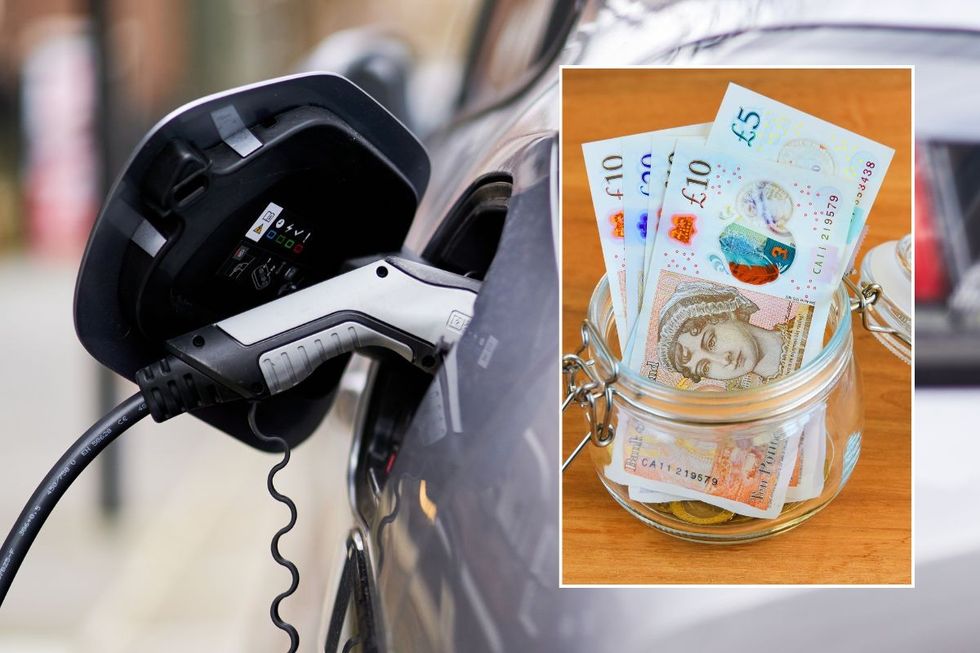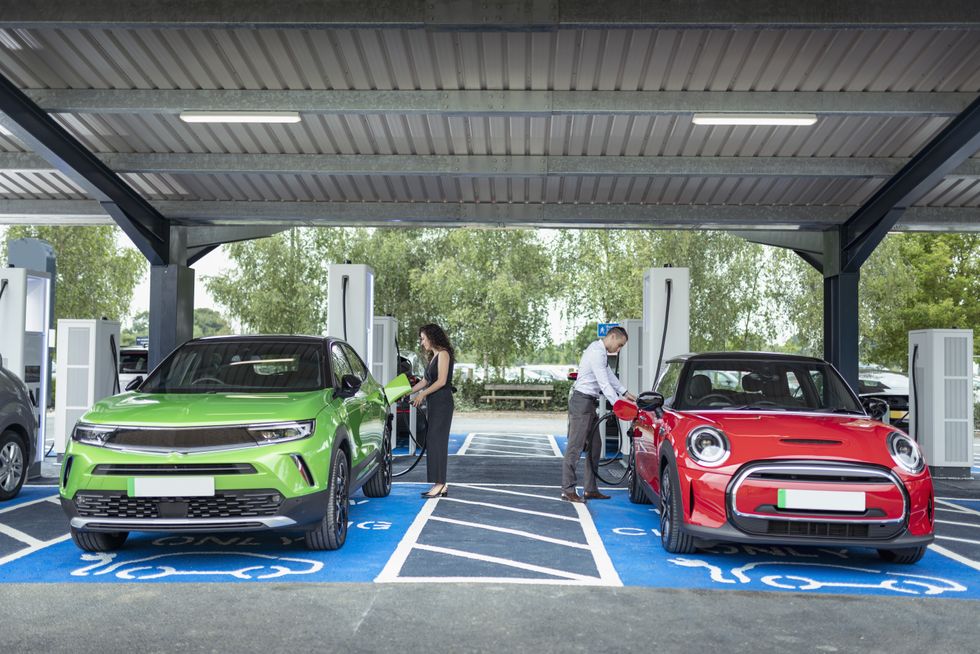Felix Reeves
Guest Reporter
Electric vehicles will remain cheaper to own than petrol models despite losing their tax exemption from tomorrow, according to new research.
The Energy and Climate Intelligence Unit (ECIU) found that owners of the top 10 best-selling EVs will benefit from average annual savings of nearly £1,200 over the vehicle's lifetime.
These savings persist even as the Treasury removes EVs' exemption from Vehicle Excise Duty (VED) on Tuesday.
The think tank warns these changes could "undermine consumer confidence" in electric vehicles at a critical time.
Do you have a story you'd like to share? Get in touch by emailing [email protected]

From Tuesday, all EV owners will be charged at least the standard rate of £195 for the second year onward after a vehicle is registered.
New electric vehicles worth more than £40,000 will also face the Expensive Car Supplement of £425 annually from years two to six.
The VED changes were announced in November 2022 under the Conservative Government, but are being implemented by Labour.
Petrol and diesel car owners will also see rate increases, with those driving the largest and most polluting vehicles facing doubled first-year payments.
The research comes as the UK continues with the Zero Emission Vehicle (ZEV) mandate, which requires manufacturers to ensure a minimum proportion of their new cars and vans sold are zero emission.
The policy has been "successful in driving competition between manufacturers up, and driving EV prices down," according to the ECIU.
Colin Walker, ECIU head of transport, warned: "The Government is risking complacency if it is seen to be increasing the cost of running an EV at such a critical time in the country's EV transition.
"These new taxes could undermine consumer confidence and hold families back from making the move to electric driving, leaving them stuck paying a petrol premium to run more expensive combustion engine cars."
The Government is currently analysing feedback from a recent consultation on proposed changes to the ZEV mandate rules, including making it easier for non-compliant manufacturers to avoid fines.
Ginny Buckley, founder of EV buying advice website Electrifying.com, criticised the £40,000 luxury car tax threshold as "outdated" and "unfairly penalises EVs due to their higher upfront costs".
The expert said: "Many family-sized electric cars such as the Kia e-Niro or Volkswagen ID.3 could be subject to a tax originally intended for luxury vehicles."
Buckley warned that families needing extra space and businesses requiring longer range "could end up paying thousands more in tax over six years". She added: "This may discourage car buyers from making the switch to electric."
LATEST DEVELOPMENTS:

A Treasury spokesperson defended the changes, saying: "The shift to electric vehicles will support growth and productivity across the UK and is crucial for tackling climate change."
"Our approach ensures fiscal stability while providing incentives through the tax system such as freezing vehicle excise duty first year rates for EVs to encourage the transition to electric and zero emission vehicles."
Find Out More...
The Energy and Climate Intelligence Unit (ECIU) found that owners of the top 10 best-selling EVs will benefit from average annual savings of nearly £1,200 over the vehicle's lifetime.
These savings persist even as the Treasury removes EVs' exemption from Vehicle Excise Duty (VED) on Tuesday.
The think tank warns these changes could "undermine consumer confidence" in electric vehicles at a critical time.
Do you have a story you'd like to share? Get in touch by emailing [email protected]

From Tuesday, all EV owners will be charged at least the standard rate of £195 for the second year onward after a vehicle is registered.
New electric vehicles worth more than £40,000 will also face the Expensive Car Supplement of £425 annually from years two to six.
The VED changes were announced in November 2022 under the Conservative Government, but are being implemented by Labour.
Petrol and diesel car owners will also see rate increases, with those driving the largest and most polluting vehicles facing doubled first-year payments.
The research comes as the UK continues with the Zero Emission Vehicle (ZEV) mandate, which requires manufacturers to ensure a minimum proportion of their new cars and vans sold are zero emission.
The policy has been "successful in driving competition between manufacturers up, and driving EV prices down," according to the ECIU.
Colin Walker, ECIU head of transport, warned: "The Government is risking complacency if it is seen to be increasing the cost of running an EV at such a critical time in the country's EV transition.
"These new taxes could undermine consumer confidence and hold families back from making the move to electric driving, leaving them stuck paying a petrol premium to run more expensive combustion engine cars."
The Government is currently analysing feedback from a recent consultation on proposed changes to the ZEV mandate rules, including making it easier for non-compliant manufacturers to avoid fines.
Ginny Buckley, founder of EV buying advice website Electrifying.com, criticised the £40,000 luxury car tax threshold as "outdated" and "unfairly penalises EVs due to their higher upfront costs".
The expert said: "Many family-sized electric cars such as the Kia e-Niro or Volkswagen ID.3 could be subject to a tax originally intended for luxury vehicles."
Buckley warned that families needing extra space and businesses requiring longer range "could end up paying thousands more in tax over six years". She added: "This may discourage car buyers from making the switch to electric."
LATEST DEVELOPMENTS:
- Aston Martin receives £125million boost from Lawrence Stroll amid serious threat from Trump's car tariffs
- Millions of drivers face 'substantial' car tax hike tomorrow after Rachel Reeves's unexpected announcement
- DVSA under pressure to slash record-high driving test waiting times as motorists face months-long delays

A Treasury spokesperson defended the changes, saying: "The shift to electric vehicles will support growth and productivity across the UK and is crucial for tackling climate change."
"Our approach ensures fiscal stability while providing incentives through the tax system such as freezing vehicle excise duty first year rates for EVs to encourage the transition to electric and zero emission vehicles."
Find Out More...
